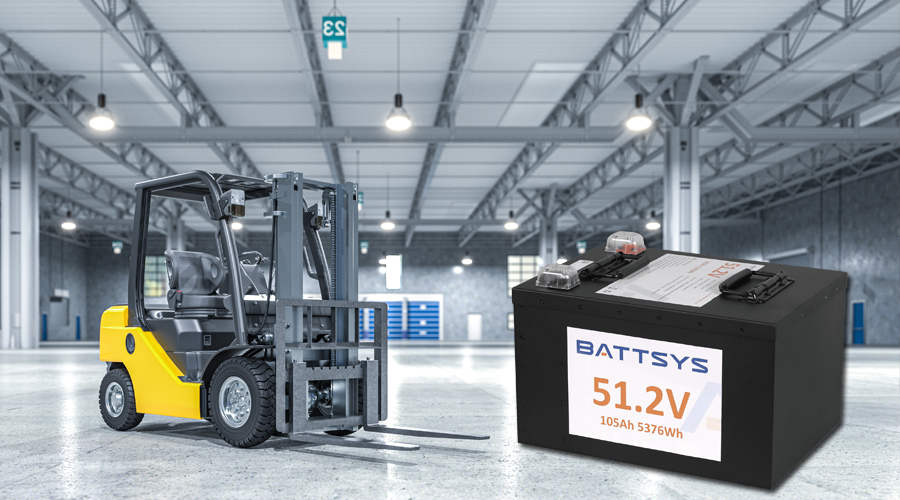Advantages and disadvantages of
forklifts lithium battery .
With the continuous development of technology, lithium battery forklifts are becoming increasingly popular. So, what are the advantages and disadvantages of lithium battery forklifts? Next, we will provide a detailed introduction to this.
Advantages
1. Safe and efficient
Compared with traditional battery forklifts, lithium battery forklifts have higher efficiency and safety. Lithium batteries do not produce harmful gases and liquids, making them relatively safer. Meanwhile, lithium batteries have higher energy density, longer lifespan, shorter battery swapping time, and can improve production efficiency.

2. Environmental protection and energy conservation
Lithium ion batteries are used in lithium-ion forklifts, which are more environmentally friendly compared to traditional lead-acid batteries. They do not contain pollutants and can reduce the pollution emissions of enterprises. At the same time, lithium batteries have a higher energy utilization rate than lead-acid batteries, which can save energy consumption, improve energy efficiency, and reduce energy costs for enterprises.
3. Long lifespan
The lifespan of lithium battery forklifts is about twice that of traditional lead-acid battery forklifts, with a service life of 4-5 years, while lead-acid battery forklifts only have a lifespan of about 2 years. This also means that the cost of replacing batteries and maintaining vehicles for enterprises has decreased.
Disadvantages
1. Expensive cost
Although lithium battery forklifts have many advantages, it also means that the cost is expensive. The price of lithium batteries is generally about 50% higher than lead-acid batteries. In addition, lithium battery forklifts are generally priced about 30% higher than regular battery forklifts.
2. Difficulty in maintenance
Compared to traditional battery forklifts, the maintenance and upkeep requirements for lithium batteries are more stringent and require specialized technicians for maintenance. If the forklift is used and maintained improperly, it will not only affect the service life and performance of the forklift, but may also pose safety hazards to personnel and the environment.
3. Charging facilities
The charging facilities for lithium battery forklifts are also a major issue. Due to the high energy density of lithium batteries, the requirements for charging facilities are also very high. If the charging facilities are not suitable, it may cause safety issues such as battery damage or fire and explosion.
Conclusion
In summary,
lithium battery forklifts have the advantages of safety, efficiency, environmental protection, energy conservation, and long service life. However, they also have disadvantages such as cost, difficulty in maintenance, and charging facilities. If a company wants to choose to use lithium battery forklifts, it needs to consider its own actual situation and needs, and make a comprehensive selection based on various factors, in order to better leverage the advantages of lithium battery forklifts, improve the production efficiency and energy conservation and environmental protection level of the company.
